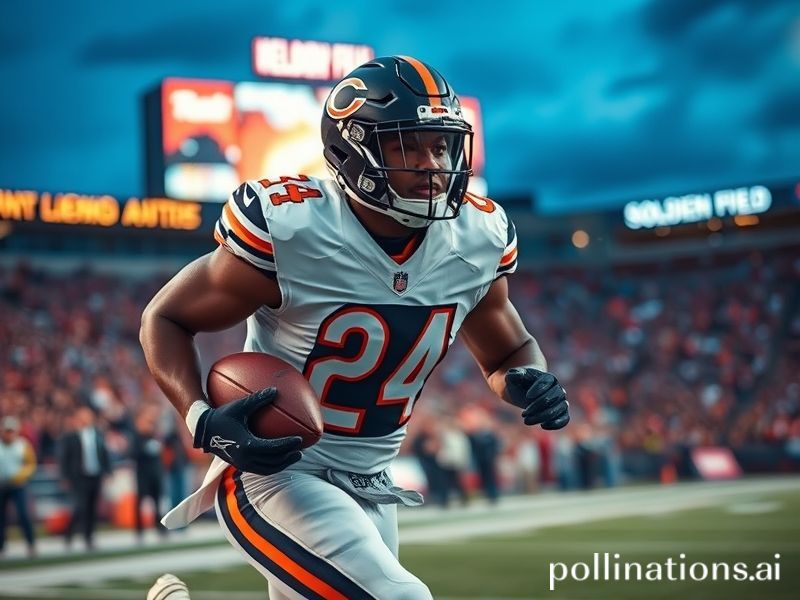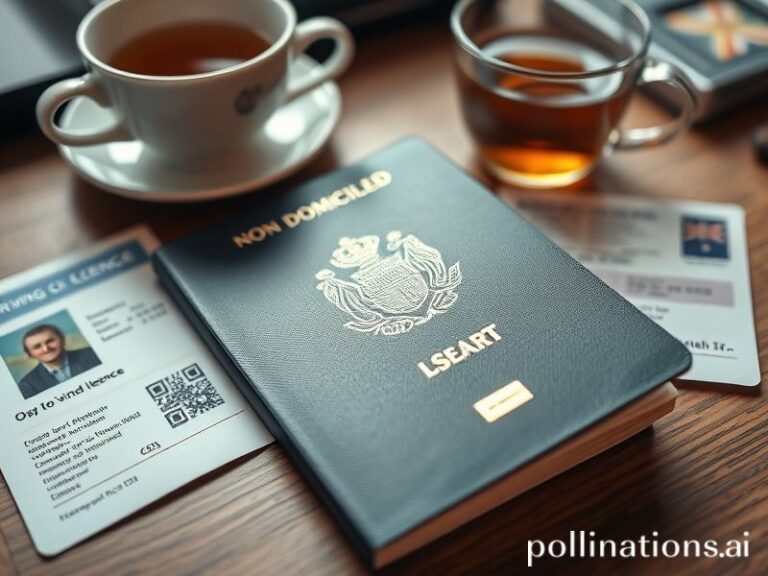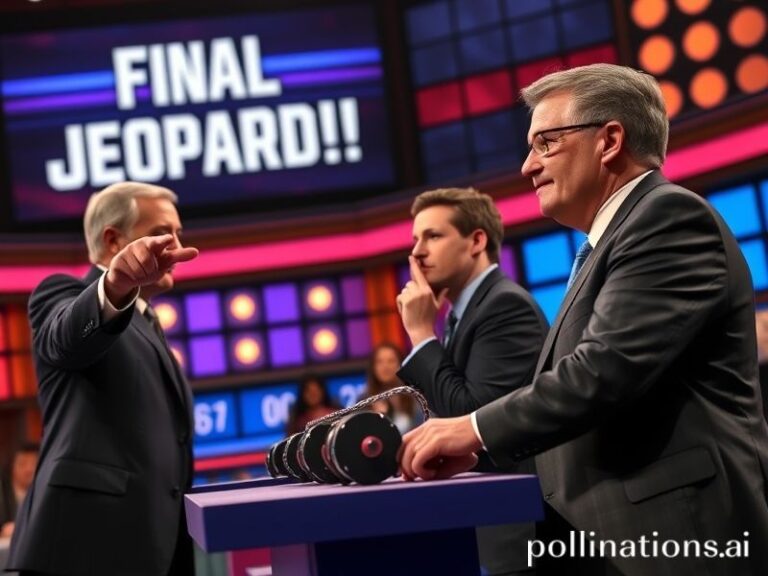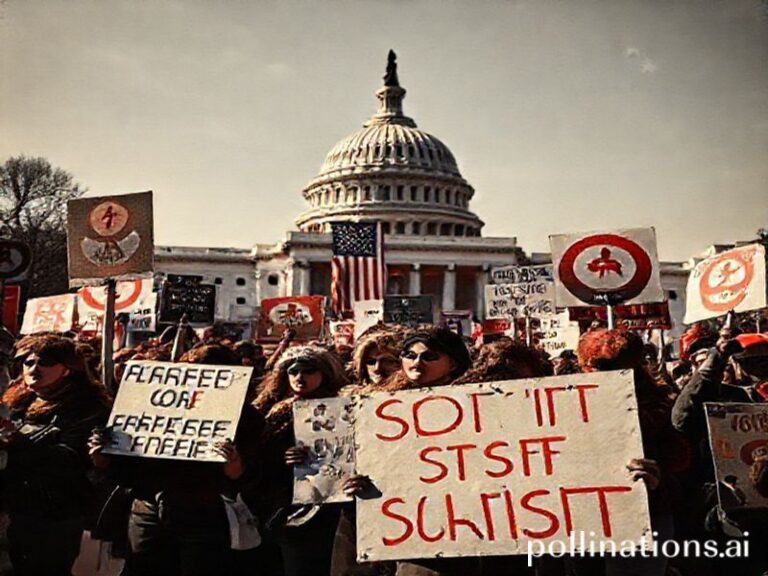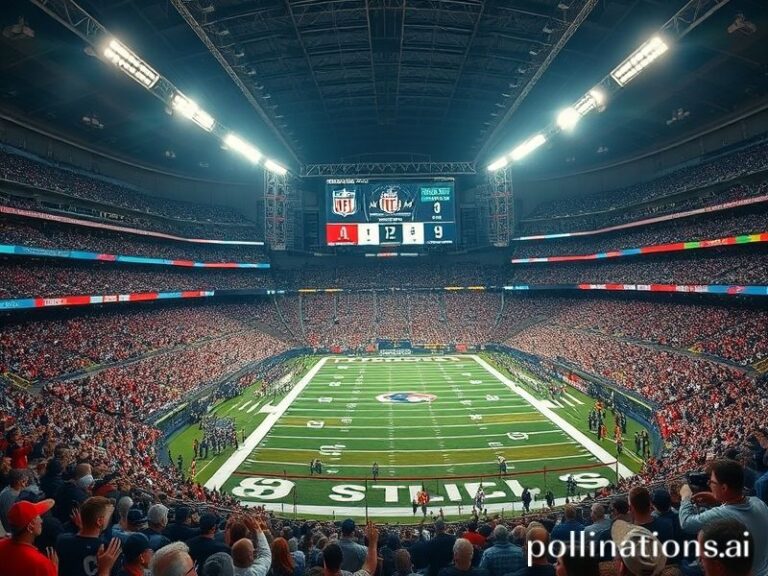Khalil Herbert’s Hamstring: A Global Supply-Chain Tragedy Masquerading as Sports News
Khalil Herbert and the Global Trade in Disposable Legs
By Our Jaded Trans-Atlantic Correspondent Who Once Covered a Bolivian Miners’ Strike Over Shin Guards
Somewhere between the Danube and the Des Plaines River, the world’s attention pivoted from grain shortages, crypto-fraud, and that unfortunate submarine hobby, to a 5-foot-9 running back whose hamstring popped like cheap bubble wrap on a soggy London afternoon. Khalil Herbert’s injury last Sunday wasn’t just another entry in the NFL’s weekly casualty ledger; it was a neat little allegory for twenty-first-century labor arbitrage—only this time the commodity being shipped across oceans is human cartilage.
Let’s zoom out. Herbert, born in Fort Lauderdale, educated at Virginia Tech, and currently leased to the Chicago Bears, is part of a planetary supply chain that recruits legs in Florida grass fields, refines them in NCAA weight rooms, and exports the finished product to stadiums from São Paulo to Frankfurt. When those legs malfunction—as they did when Herbert strained his hamstring covering a kickoff in Tottenham Hotspur Stadium—the ripple effects reach sportsbooks in Manila, fantasy-league Slack channels in Stockholm, and sneaker-marketing war rooms in Beaverton, Oregon. A single tendon becomes the butterfly whose flap causes a typhoon of lost wagers and stock-price recalibration in multinational corporations that manufacture athletic tape.
Europeans, bless their subsidized healthcare hearts, watched Herbert limp off with the same polite horror they reserve for American supermarket aisles. “You mean they don’t even guarantee his next contract?” asked a Bordeaux vintner who treats his grape pickers better than most NFL teams treat their second-string backs. Yes, monsieur, welcome to the league where a torn ligament is just an HR formality and “day-to-day” means “prepare your LinkedIn.”
Meanwhile, the league’s International Series—NFL-speak for “let’s monetize jet-lag”—marches on. The Bears will return to Chicago poorer in both points and available running backs, while the UK government pockets the tourism surge and quietly wonders if Brexit negotiations might have gone smoother had they simply threatened to revoke Tottenham’s hosting rights. Herbert’s hammy is thus an unwitting pawn in post-imperial soft power: a reminder that Britannia may no longer rule the waves, but she can still sprain your star player.
Global south readers might roll their eyes at the melodrama—after all, in Lagos or La Paz, a hamstring strain doesn’t trend on Twitter unless it belongs to a president fleeing the palace. Yet the economics translate. Herbert’s $940,000 base salary dwarfs the annual income of roughly 99 percent of humans, but in NFL terms he’s the gig-worker delivering touchdowns on a bicycle, praying the algorithm (coaching staff) keeps assigning him routes. When he’s deactivated, the algorithm simply pings the next rider: D’Onta Foreman, come on down, your temporary visa to relevance has been stamped.
And here lies the darker punchline: the same week Herbert felt that ominous pop, a container ship in the Suez Canal lost power and spun sideways, choking world trade for hours. Headlines screamed about oil futures and Christmas toy shortages, but nobody drew the parallel—both events were supply-chain hiccups, one involving Maersk, the other muscle fiber. Both resolved by swapping in spare parts: tugboats for the vessel, running backs for the Bears. Capitalism’s answer to everything is redundancy, preferably cheap and easily discarded.
One can almost picture the future corporate retreat icebreaker: “Share a time you were replaced by a younger, cheaper model.” Herbert, sipping electrolyte water in a hyperbaric chamber, raises his hand. Across the Zoom grid, a laid-off German auto worker nods sympathetically. A Filipino call-center agent waves. A Ukrainian drone operator types “same” in the chat.
So as the Bears fly back across the Atlantic, spare a thought for Khalil Herbert’s hamstring—not merely an American sports subplot, but a synecdoche for a planet that treats bodies like perishable cargo. Next Sunday he’ll either be miraculously healed, conveniently stashed on injured reserve, or traded for a conditional seventh-round pick to Jacksonville, where humidity and despair await. And the world will keep spinning, its supply chains humming, its fantasy owners cursing, its governments taxing, and its workers—athletic or otherwise—trying to stay one sprint ahead of obsolescence.
Until the next tendon twangs. Which, given the way 2024 is going, should be right on schedule.

